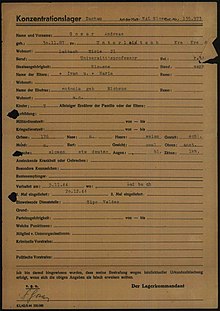Andrej Gosar
This article needs additional citations for verification. (January 2013) |

Andrej Gosar (30 November 1887 – 21 April 1970) was a
Early life and career
Gosar was born in a working-class family in
In 1918, after the dissolution of the Austro-Hungarian Empire and the creation of
In 1929, he became professor of sociology and economy at the
Theoretical work
During the 1920s and 1930s, he published numerous treatises on economic and social policies. The most important of these were Essays on National Economy (1922), For A Christian Socialism (1923), Social Economy (1924). In his magnum opus, the treatise For A New Social Order, published in two volumes between 1933 and 1935, he defended a
With the rise of Catholic integralism and
World War II and later life

After the Axis
After the return in 1945, he was stripped of most of his pre-war academic functions by the new Communist regime; he was however allowed to continue teaching forest legislation at the Technical Faculty. After retirement in 1958, he published a personal memoir, in which he bitterly described his position in the decade 1935-1945 as "the voice shouting in the desert".
In 1967, he was awarded with the Pro Ecclesia et Pontifice by the Holy See.
He died in Ljubljana in 1970.
References
- ^ "Org. Vidiki delovanja". Archived from the original on 2009-12-15. Retrieved 2009-05-11.
- ^ http://cobiss2.izum.si/scripts/cobiss?ukaz=DISP&id=0211591789288403&rec=1&sid=3[permanent dead link]
Sources
- Marko Zupanc, "andrej gosar" "Ekonomska misel Andreja Gosarja", Zgodovinski časopis 53, 4 (1999), 553-575 (in Slovene)
